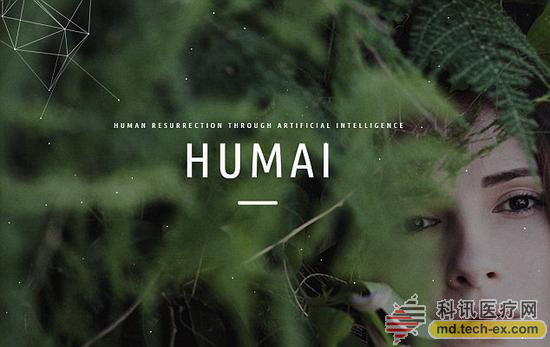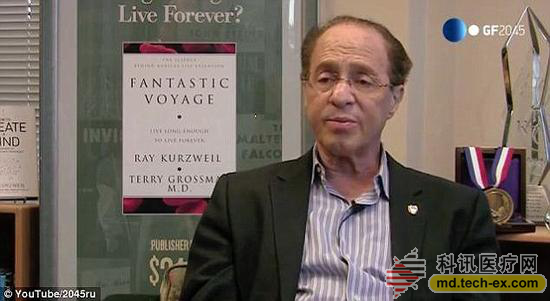Release date: 2015-12-01 Many companies, including Google, are studying ways to extend human life, and even if they can't live for hundreds of years, it's good to live for decades. But a Los Angeles company called Humai is doing the opposite. Rather than extending human life, the company is hoping to use artificial intelligence to bring back dead people back to life. The company explained that they plan to use artificial intelligence and nanotechnology to "store informational data such as conversational styles, behavioral patterns, and thinking processes." The data is then encoded and converted into "multiple sensing technologies" that are transplanted to an artificial body along with the skull of the body. Google Engineering Director Ray Kuzwell previously said that within 30 years, humans will be able to upload all their thinking to the computer and live forever in the form of numbers - an event called "singularity" ". These were done while we were alive, and Humai's plan is to make us die and resurrect, the two are different. The details about this technology are still very limited, and we don't know if it is a scam, but as far as we know, it needs to freeze the brain and then equip it with a "personality chip." ". Josh Bocanegra, the founder of Humai, assured critics that he would remain serious about the resurrection of humanity and that he believed that the technology would be realized within 30 years. According to the company's official website, Humai is an "artificial intelligence company that rebuilds its life in the future." We hope that after you die, you will be able to return to life. †The company explained that they plan to use artificial intelligence and nanotechnology to "store informational data such as conversational styles, behavioral patterns, and thinking processes." The data is then encoded and converted into "multiple sensing technologies" that are transplanted to an artificial body along with the skull of the body. In addition, the company said that as the brain "grows" grows, they will use clonal nanotechnology to repair and rebuild it, ready to "return to life." At present, we don't know how much the process will cost. The way to get the brain is still unclear. However, Mr. Boca Negra said: "After the death of the relevant personnel, we will use the body freezing technology to freeze the brain." He added that the function of the artificial body will be controlled by the brainwaves of the deceased, and is the most advanced today. The prosthetic technique is controlled in a similar manner. When asked about the reasons for this idea, he said that artificial bodies can "enrich human experience" and make death a more acceptable thing. Although this idea is somewhat similar to the concept of "singularity", there is a certain difference between the two. Technical singularity refers to the development of “super intelligence†brought about by the use of technology. Simply put, it refers to uploading our minds to a computer and then replacing some of our bodies with machines, becoming smarter and healthier while we are still alive. The mathematician John von Neumann first used the term "singularity" to refer to technical thinking in the mid-1950s. He said: "Technology has never stopped making progress, and human life patterns are constantly changing. This makes us feel that we are approaching an important singularity in human history, and after crossing this singularity, we All human affairs that are known will not continue to develop." The science fiction writer Vernor Vinge later began using the term, and he believed that "brain-computer interfaces" would be the trigger for technical singularity. Ray Kurzweil, Google's engineering director, recently quoted the word "singularity" in the preface to von Neumann's classic book Computer and Human Brain. He expects the singularity to arrive around 2045, while Vinci's prediction is before 2030. In addition, Google Ventures president Bill Maris believes that with the help of medical breakthroughs and biomechanics, humans may live to 500 years old in the future. He has invested some money in genetic research companies and cancer diagnostic startups, and said: "We already have tools in the life sciences, and as long as you dare to think, we dare to do it. I hope to live as long as possible. †Maris founded Google Ventures in 2009 and oversaw the Foundation's activities around the world. However, Colin Blakemore, a former CEO and neuroscientist at the British Medical Research Council, presented a different perspective at a recent geriatric conference. He believes that human life has a ceiling, and 120 years old "may be the limit of human life." He added that people who can live 120 years of age are so rare that even if medical and technological advances are advanced, this number is hard to improve. Source: Sina Technology Immunization Using Cell Culture Based Rabies Vaccines Rabies is a viral infection transmitted by saliva of infected mammals, most commonly wild, terrestrial carnivores (e.g., skunks, raccoons, foxes, coyotes) or bats. Immunization Using Cell Culture Based Rabies Vaccines,Based Rabies Vaccines,Cell Culture Rabies Vaccines,Cell Culture Based Rabies Vaccines Changchun Zhuoyi Biological Co., Ltd , https://www.zhuoyi-bio.com
